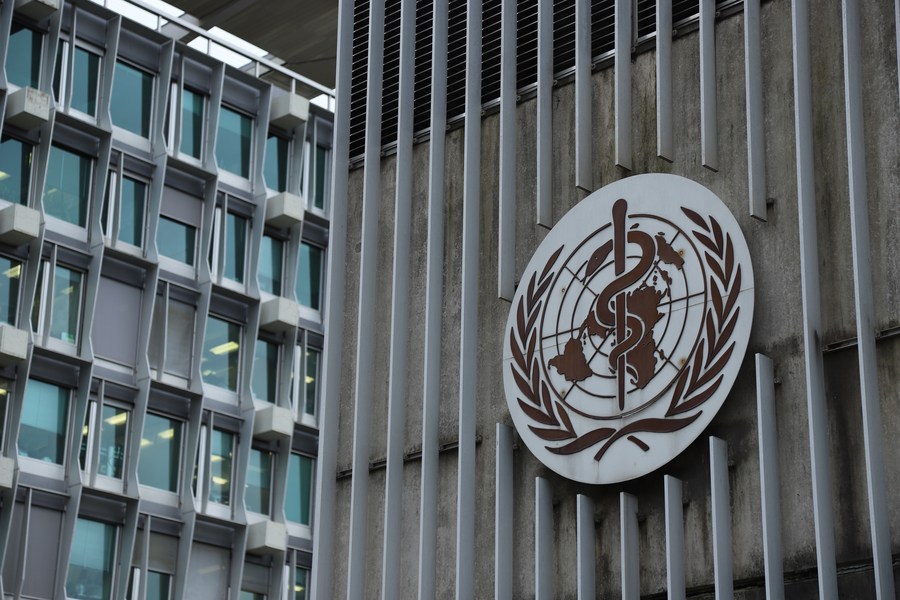


Photo taken on Jan. 30, 2020 shows the headquarters of the World Health Organization (WHO) in Geneva, Switzerland. (Xinhua/Chen Junxia)
GENEVA, Feb. 1 (Xinhua) -- A report from the World Health Organization (WHO) on Monday urged countries to improve their health information systems for a better understanding of the health sector and respond more quickly to health emergencies.
About four in ten of the world's deaths are unregistered and in the African region, only one in ten deaths is currently recorded, according to the first-of-its-kind WHO SCORE Global Report, where SCORE stands for Survey, Count, Optimize, Review, Enable.
The report includes a technical package of essential interventions, recommended actions, tools and resources that aims to support countries in addressing challenges and meeting health information system needs.
It highlights the urgent need to strengthen the standardized system to report causes of deaths to help the world respond to health emergencies and track progress towards global health goals.
The COVID-19 pandemic has revealed that even the most advanced health and data systems still struggle to provide data in near real-time in order to act swiftly, as the lack of data worldwide limits the understanding of the true mortality impact of COVID-19, undermining response planning.
"The pandemic has stretched the capacity of country health information systems around the world, as they must track both the disease and other critical health trends," said WHO Director-General Dr. Tedros Adhanom Ghebreyesus, adding "The SCORE report is an important step towards better data, for better decisions and better health."
The report estimates that 60 percent of the countries reviewed have a well-developed system for reviewing progress and performance of their health sector and only half have the capacity to monitor quality of care, while only 32 percent have good capacity for a national digital health strategy based on recommended standards.
Although there is good availability of data on areas such as immunization, tuberculosis and HIV incidence, there is less coverage on health issues such as mental health and cancer. Less than half of countries report national facility data on severe mental health disorders.
"With SCORE at hand, WHO will support countries around the world to address data gaps and strengthen their data and health information systems," said Dr. Samira Asma, assistant director-general for Data, Analytics and Delivery.

 Award-winning photos show poverty reduction achievements in NE China's Jilin province
Award-winning photos show poverty reduction achievements in NE China's Jilin province People dance to greet advent of New Year in Ameiqituo Town, Guizhou
People dance to greet advent of New Year in Ameiqituo Town, Guizhou Fire brigade in Shanghai holds group wedding
Fire brigade in Shanghai holds group wedding Tourists enjoy ice sculptures in Datan Town, north China
Tourists enjoy ice sculptures in Datan Town, north China Sunset scenery of Dayan Pagoda in Xi'an
Sunset scenery of Dayan Pagoda in Xi'an Tourists have fun at scenic spot in Nanlong Town, NW China
Tourists have fun at scenic spot in Nanlong Town, NW China Harbin attracts tourists by making best use of ice in winter
Harbin attracts tourists by making best use of ice in winter In pics: FIS Alpine Ski Women's World Cup Slalom
In pics: FIS Alpine Ski Women's World Cup Slalom Black-necked cranes rest at reservoir in Lhunzhub County, Lhasa
Black-necked cranes rest at reservoir in Lhunzhub County, Lhasa China's FAST telescope will be available to foreign scientists in April
China's FAST telescope will be available to foreign scientists in April